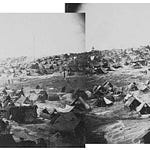Originally published on March 21, 2022 (Episode 256)
Introduction
On the coast of Greece stands a little-noticed monument ordered by Augustus to commemorate his victory at Actium. There, in 31 BC, a fleet loyal to Octavian defeated one commanded by Mark Antony and Cleopatra. The consequences of that battle were profound: it secured Augustus’s rise, determined the shape of Roman politics and society, and set trajectories that would influence culture and even religion for centuries.
In The War That Made the Roman Empire: Antony, Cleopatra, and Octavian at Actium (Simon & Schuster, 2022), Barry Strauss narrates not just the clash of fleets, but the larger story of ambition, loyalty, and the future of Rome decided in a single conflict.
About the Guest
Barry Strauss is the the Corliss Dean Page Fellow at the Hoover Institution and Bryce and Edith M. Bowmar Professor Emeritus in Humanistic Studies at Cornell University. He is the author of numerous books on the ancient world, including The Death of Caesar and The Battle of Salamis. This is his third appearance on Historically Thinking.
For Further Investigation
Barry Strauss, The War That Made the Roman Empire: Antony, Cleopatra, and Octavian at Actium (Simon & Schuster, 2022)
Barry Strauss, Rowing Against the Current: On Learning to Scull at Forty — a memoir about discovering rowing at midlife
Episode XX: The Death of Caesar, with Barry Strauss
Episode XX: Thucydides, with Barry Strauss
💬 Listen & Discuss
Why did Actium prove so decisive in shaping Rome—and Europe’s future? What does the clash of Antony, Cleopatra, and Octavian reveal about ambition and power? Share your reflections in the comments. And pass this episode along to anyone you know who thinks about the Roman Empire at least once a day.











